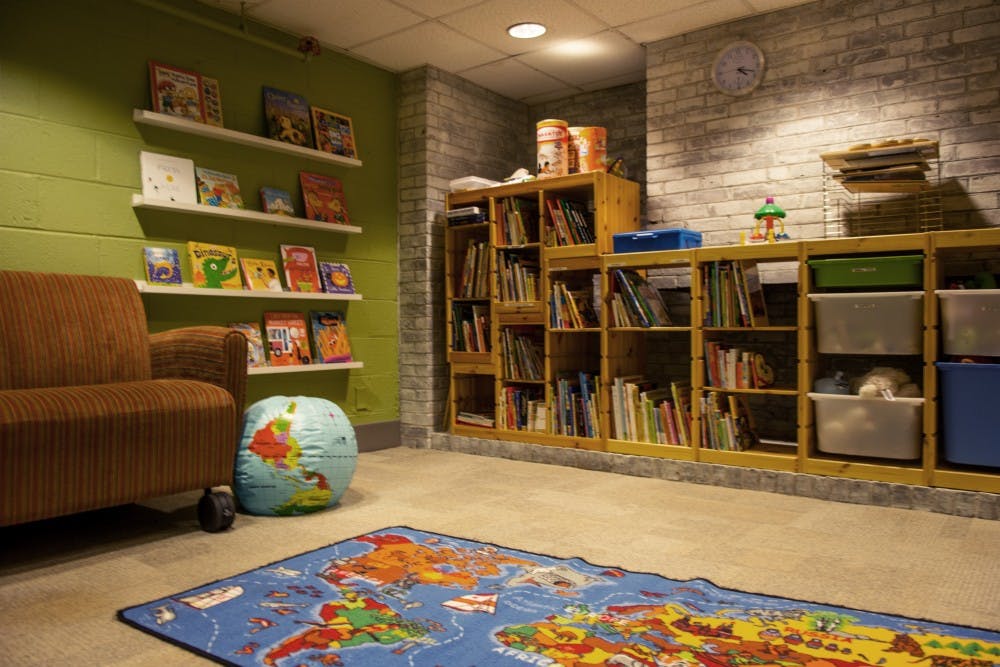In an effort to increase awareness of the growing resources for graduate students with children at Penn, Penn has designated the Family Resource Center as the primary contact for new parents requesting accommodation or leave of absence.
As of this past spring semester, all requests for leave or accommodation for graduate students who have recently had or have recently adopted a child are to be sent to the Family Resource Center. Before, these requests would go through the student's individual department.
Executive Director of Graduate Education Anita Mastroieni said the decision to have information centralized in one location rather than localized by academic department is part of an effort to help make the student-parent experience easier. Mastroieni added she hopes this change will remind students of the resources that exist and better connect them to the resources available.
“If you’re a third or fourth year Ph.D. student, we told you about this place at orientation, but you may not remember it,” Mastroieni said. “This ensures students get the information exactly when they need it.”
Center Director Jessica Bolker said it is important for new parents to be aware of these resources since they often struggle to balance life as a student, spouse, and parent.
Mastroieni said options to relieve that stress for new parents include taking an "accommodation," which refers to a shorter break with benefits, and taking "leave," which refers to a longer break that suspends benefits.
Bolker said the center acts as a space to meet and receive support from other parents, such as through the Student Parent Wellness Group whose meetings include a counselor from Counseling and Psychological Services and a social worker.
“Most students at Penn come from someplace else,” Mastroieni said. “It leaves you in a place where you don’t have a network to rely on.”
Mastroieni added the center also works with a council of deans to raise awareness for the issues graduate parents face. She said that something as simple as not having events in the late afternoon could make a big difference for these students.
Finances for raising a family on a student budget pose an additional challenge — an area Bolker said the center has been specifically targeting in recent years.
The Family Resource Center grants, established in 2012, have grown considerably in the past few years, Mastroieni said. Whereas grants to cover family expenses were previously limited to $2,500 per child, the center now provides $5,000 for one child and $2,500 for additional children up to $10,000. The center also provides a Dependent Health Insurance grant that covers up to $1,000 per dependent.
For Sofia Torres, whose partner is a Wharton second-year MBA student, the Penn network for student parents is especially important.
Torres and her partner came from Mexico to Philadelphia when their daughter was eight months old, and the family has since become involved with the support network for families in Wharton.
“The biggest thing was the culture shock," Torres said. “With them around to answer questions it’s been really easy.”
Despite an expansion of existing resources, graduate parents in the past have expressed issues with the University culture or climate, citing lack of faculty empathy and exclusion. Recently, Penn has decided to focus on “valuing graduate students,” a project that includes the recent creation of the bias reporting form as well as increased grant support for parent graduate students.









